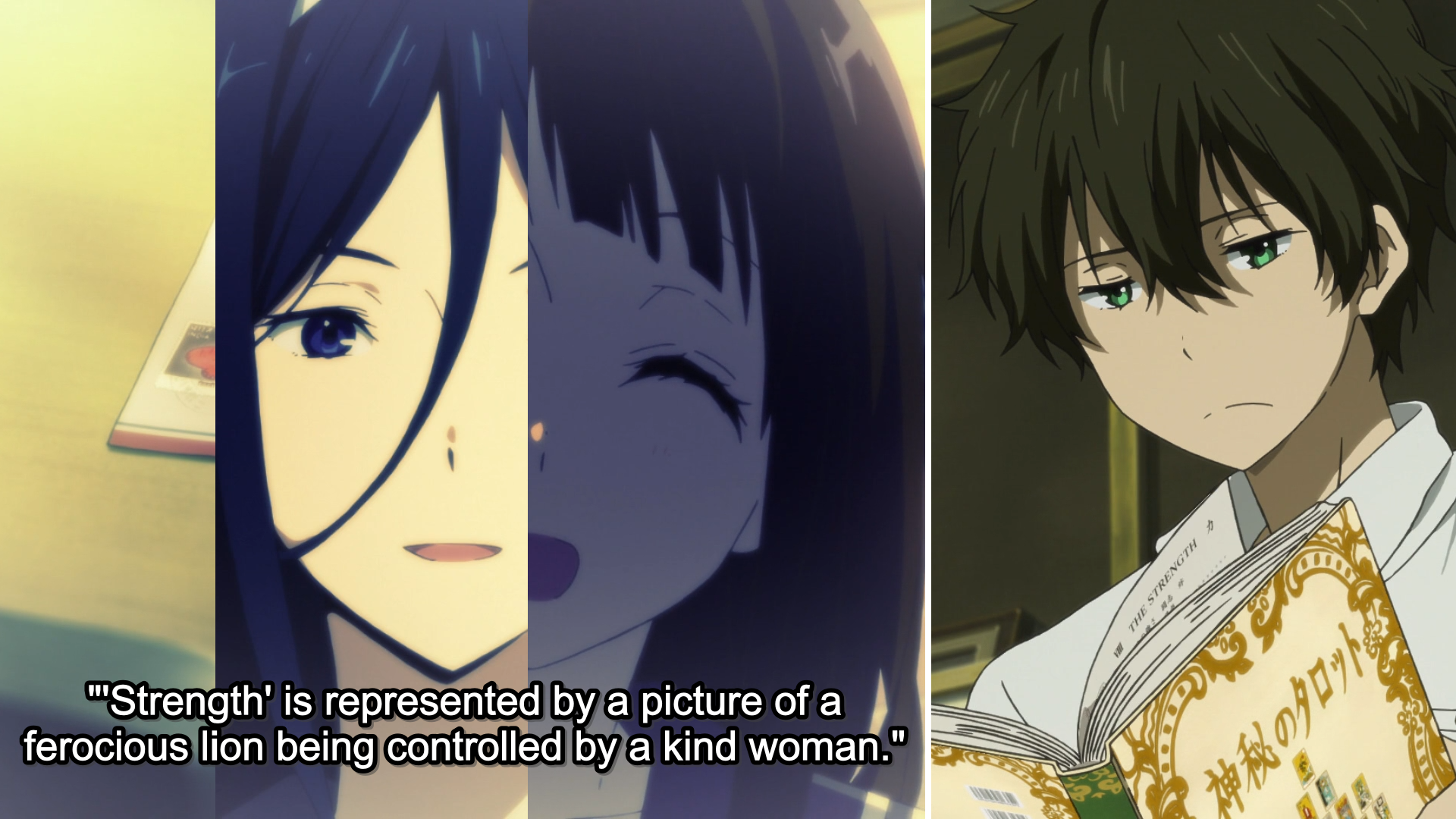Hyouka is one of my comfort anime. Not only is it still beautiful by today’s standards - Kyoto Animation of Violet Evergarden did a fantastic job adapting the inner workings of Oreki’s mind - it captures that indescribable comfort of a cozy detective mystery - and thankfully, none of the murder.
But what stands out most to me is the subtle, yet realistically profound character development.
At this point I’m going to spoil one thing from the light novels: there is a reason for Oreki Houtarou’s ‘Minimal Effort’ Creed.
I don’t think Oreki’s personal creed is simply “If you don’t have to do it, don’t do it. If you have to do it, do it as quickly as possible.” I think he doesn’t want to be used or manipulated. This is a reasonable concern stemming from a mature understanding of personal relationships, but it can be isolating. Chitanda is the perfect foil.
She is completely open with him. And! She’s constantly dragging him - literally and figuratively - into new adventures. One of my favorite moments is when Satoshi assigns everyone a tarot card symbol during the most important case for Oreki’s personal development, “Why didn’t they ask Eba?” Oreki looks up the meaning of ‘Strength’ - and realizes Satoshi was poking fun at his inability to tell Chitanda “No.” But, Oreki also thinks of Irisu and his sister at this moment. Why is this significant?

His sister manipulates him often - she is the reason he’s in the Classics Club. She gives him the doujinshi manga in the Jumoji Case. And, she recommends Irisu use him for her film predicament. Why? I think his sister is setting up experiences for Oreki: a better high school environment, an interesting culture festival, important connections.
Irisu-senpai uses Oreki for personal gain. She doesn’t want her name associated with a poor quality film, and pretends she’s saving a classmate from public scorn. Oreki believes, for the first time in his life, that he is special - only to realize Irisu promoted this feeling for her own benefit.
This is the perfect contrast to Chitanda, who asks him for help in order to better understand herself and others. It’s a wonderfully meaningful scene when, near the end of the series in the Intercom Announcement Case, Chitanda reiterates everything Irisu told Houtarou - but Chitanda means it. She admires his mind, and thinks he’s special and good. Oreki thinks she’s mistaken, but he’s grown to trust her.
My favorite episode is the Ogi-sensei Case. Oreki doesn’t realize that he’s grown to care for Chitanda, or that he’s justifying his feelings for her by saying he “owes her one.” By the last episode, “The Doll That Took a Detour,” Oreki values the tasks Chitanda values. It’s not that his motto is gone; he’s allowed another judgment in the measure of his creed.



